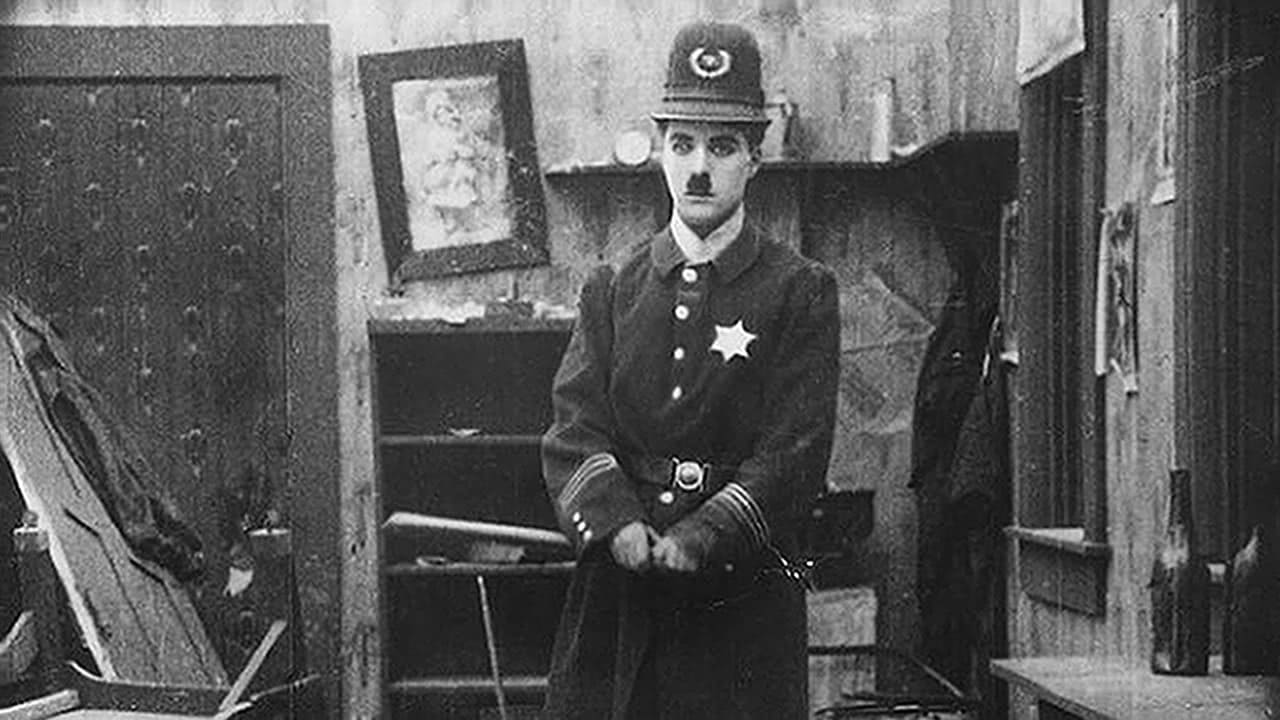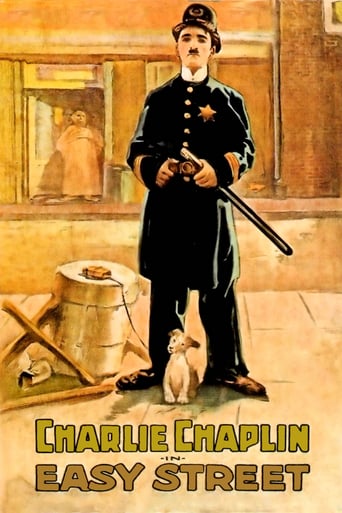



Too many fans seem to be blown away
Surprisingly incoherent and boring
brilliant actors, brilliant editing
Absolutely brilliant
Charlie enters a Mission and has a religious awakening, thanks to a beautiful woman (Edna).He then becomes a policeman to maintain law and order on a restless street, where Eric Campbell bullies around good citizens.Of course the little tramp is tough enough to beat the bully, never mind the size difference.Easy Street (1917) is a Charles Chaplin comedy filled with fast-paced action.It is quite funny the way he uses his nightstick, like after the man laughs at him.This movie also contains a drug addict, and there is a scene with a needle shooting up.And Charlie sits on this needle.That was a little shocker to me.But oh well, they show a lot worse stuff in modern movies.
View MoreMonday September 24, 7:00 pm, The Paramount Theater A derelict (Charles Chaplin) visits the local rescue mission where he finds encouragement and resolves to make "A new beginning." Hired as a policeman at a stationhouse where street violence rages uncontrolled, he vanquishes an enormous bully (Eric Campbell), twice, restores civility to the neighborhood, and gains the respect of the beautiful mission worker (Edna Purviance). Easy Street is without question Campbell's best performance, as the rampaging monster and ultimate challenge to Charlie's survival. The ninth of Chaplin's twelve productions for the Mutual Film Corporation, Easy Street is among the most popular and best remembered. It was the last of the twelve produced on a monthly basis and came at a point in Chaplin's career when his working methods became increasingly meticulous and greater amounts of time were required to produce fewer films. Chaplin used nearly as much time to produce the final three films as the nine they preceded.
View MoreWhen a tramp decides to go straight, he returns the money he has just stolen from a mission and commits to putting back into his community by joining the police force. Unfortunately for him his assigned patrol is Easy Street a virtual no-go area controlled by a violent and intimidating bully. Unaware of this the young tramp heads onto the beat.Very highly rated on this site, this short film is a typical Chaplin film as it mixes comedy with an social heart. In this regard I must admit that I found it amusing (but not hilarious) and engaging (but hardly cutting in its insight). What I supposed is most telling is that the film isn't dated and boring, it still seems fresh and lively even though technology has moved so far ahead of the period; that doesn't mean it is brilliant but it must stand for something I guess. The scenes are well laid out and tickled me but personally I much prefer the shorts of Laurel & Hardy for their sheer comedy value.Chaplin is his usual reliable self and does his tramp personae well. He is given sturdy support specifically from Campbell as the E Street bully but also from others who react to Chaplin rather than doing something themselves. Overall then an amusing little short that will please Chaplin fans. Not one of his best but certainly worth a look for those with more than a passing interest in the man.
View More'Easy Street' is a short comedy from Charlie Chaplin and in this one he doesn't play his popular tramp. Although he is not the tramp I find this short one of the best from Chaplin I have seen. It is as funny as the other shorts he has made but for some reason the story here keeps your attention a lot easier. I had a great time watching this.Chaplin is a police officer who must go to Easy Street where a man is causing some trouble. Chaplin arrests the man, sort of by accident, but because all the other police officers are scared of the man he manages to escape. He faces Chaplin once again, and the moments where Chaplin is followed are hilarious. There a lot of other very nice moments, and of course there is a girl. A terrific Chaplin short.
View More